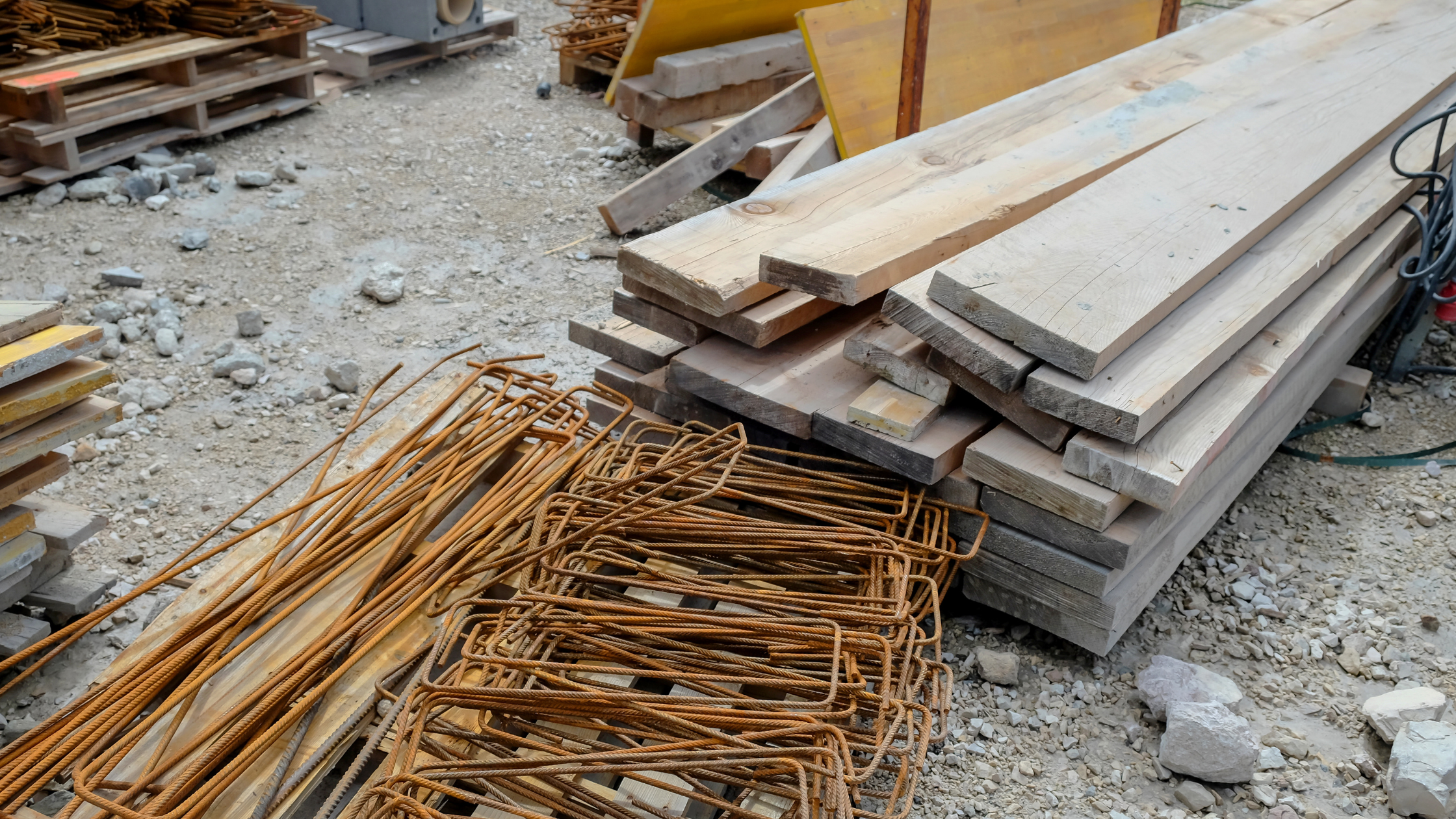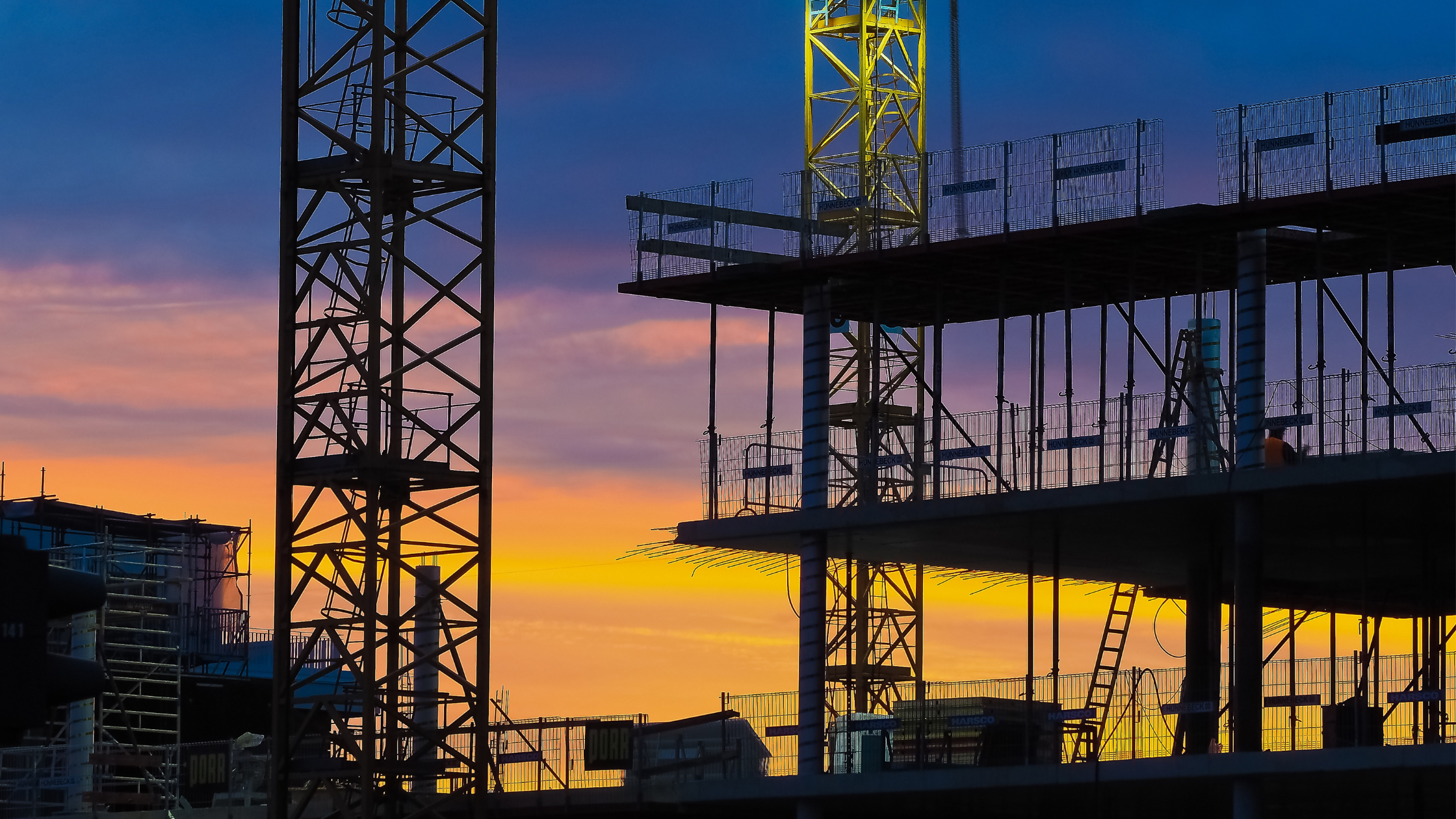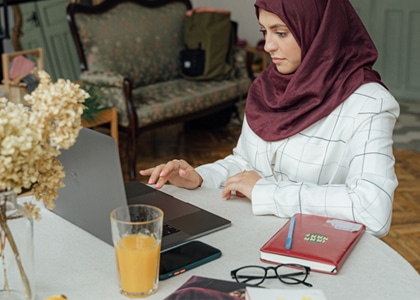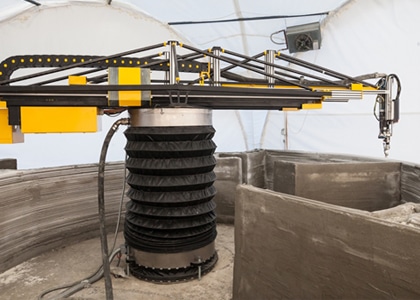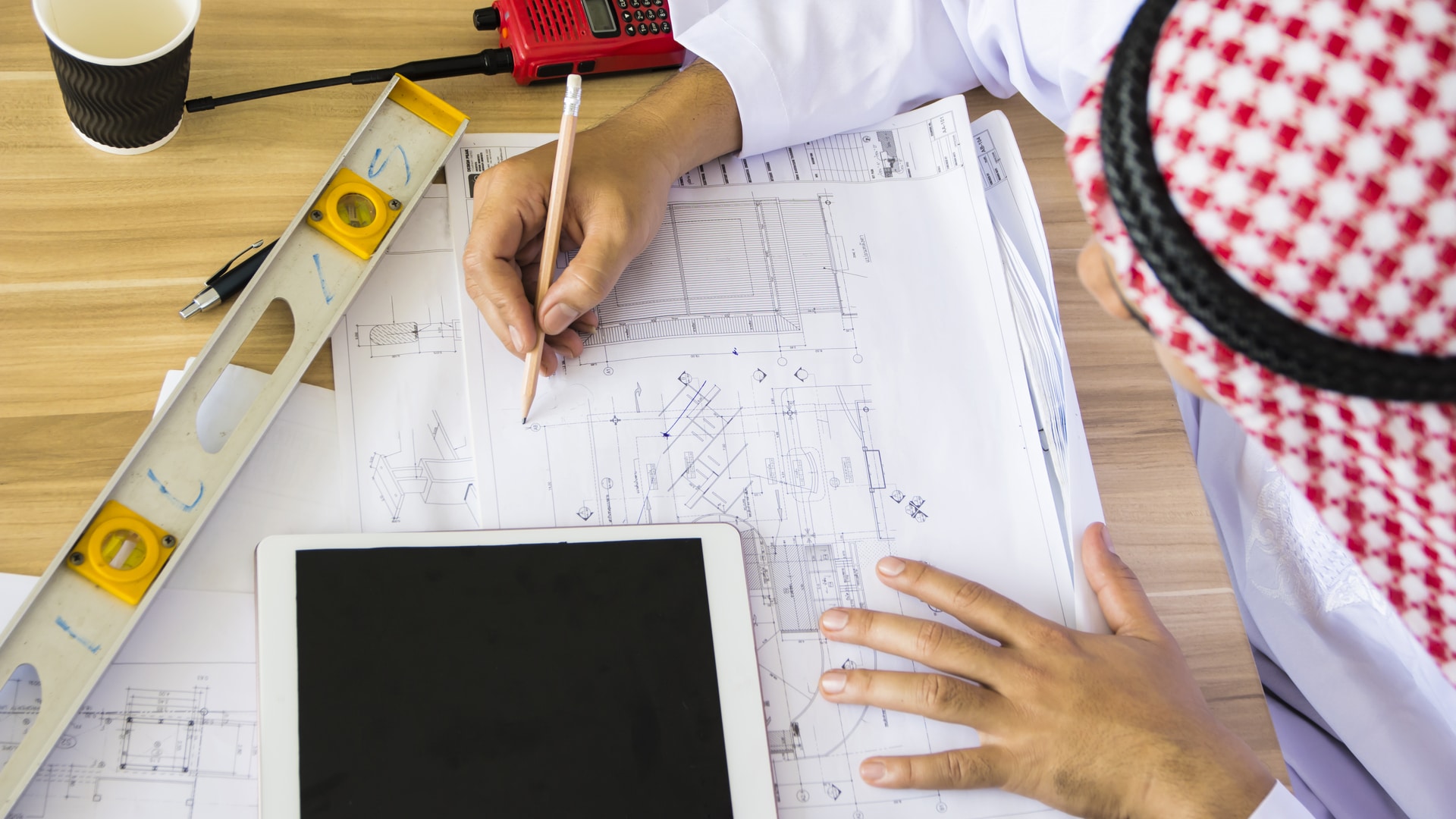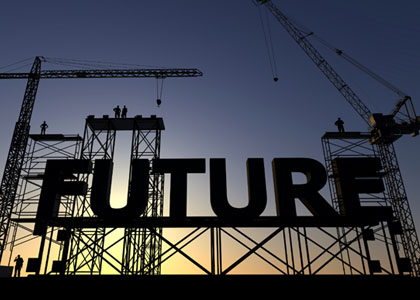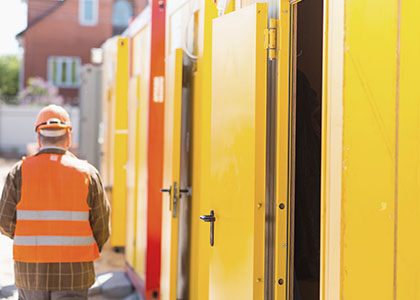Home / Blog / Is it time for saudi arabia to embrace green construction?
SUMMARY
Green construction is gaining traction in the Middle East and beyond, not only because of growing concerns about environmental issues but also because it has become necessary to use resources efficiently. What’s more, the Covid-19 pandemic has changed the landscape for the regional construction industry. Many projects had to be paused, which affected construction businesses, project timelines, and budgets.
While recovering, construction companies are now giving top priority to the timely completion of existing projects as they continue to bid for new tenders. To get an edge over their competitors, they are positioning themselves as sustainable companies that have aligned their approach with the country’s Vision 2030 plans.
The main reason is that an increasing number of businesses prefer construction companies that consider overhead costs resulting from environmental impacts and material wastage. Additionally, as consumers become more informed, projects with a large carbon footprint are likely to face some resistance and backlash.
This report explores the impact of green construction on the Kingdom’s construction industry, how it can boost the sector’s transformation under Vision 2030, and whether now is the right time for construction companies to adopt this approach.
INDEX
- Grow your business by leveraging green construction
- Post-pandemic recovery
- Align your company with Saudi’s Vision 2030 Plans
- Green Construction Projects in the Kingdom
IS IT TIME FOR SAUDI ARABIA TO EMBRACE GREEN CONSTRUCTION?
Green construction is not just a buzzword. It has become a necessity in today’s world where soaring populations and limited resources are raising the stakes for cities with huge carbon footprints. As the Saudi construction industry recovers from the disruptions caused by the Covid-19 pandemic, sustainable construction is expected to play a pivotal role in encouraging local and international investments. What’s more, as the sector charts its course to recovery, Saudi’s construction output is expected to increase by 3.3% this year. Embracing green construction that takes an environmentally friendly and resource-efficient approach at every stage of a project’s life cycle can help the industry create a more positive future.
The Kingdom is already the region’s leader in meeting its many sustainability targets, but it has its eyes set on even bigger goals. By planning and developing sustainable, human-centric buildings and cities, the Kingdom is positioning itself as a leader in the global construction industry that focuses on three main points: the planet, the people, and profits.

Listed below are some of the advantages that come from embracing green construction:
- Grow your business by leveraging green construction
Opting for projects that focus on sustainability and leverage cutting-edge innovations can benefit construction businesses in multiple ways, including more visibility and cost reduction.
- Smaller carbon footprints can take you further
The global construction industry has a significant carbon footprint. It is estimated that around 38% of global energy-related carbon emissions come from this sector. Combined with the Gulf region’s already high ecological footprint, more needs to be done to make the sector environmentally conscious. Saudi, along with other regional countries, needs to improve its infrastructure further to boost sustainability. While the global average for recycling, recovering, or reusing plastic and metal waste is around 32%, the GCC region clocks in at 10%. The government is already focusing on reducing Saudi’s carbon footprint across all sectors of the economy. Construction companies also need to play their part in making the sector sustainable by recycling and reducing construction waste.
- Use the current state of the construction industry to your advantage
The MENA construction industry faced contraction in 2020 due to the Covid-19 pandemic, but 2021 has brought improvements. According to a study by GlobalData, the MENA region’s construction output is expected to grow by 1.9% in 2021, and 4.1% next year. The same study also forecasts a positive output for Saudi. The Kingdom’s construction sector is predicted to move into recovery mode, putting it on a trajectory for increased economic performance in the coming years. However, as businesses recover, they will be more focused than ever on cost-efficiency and on cutting down the wastage of construction materials.

2. Post-pandemic recovery
The Covid-19 pandemic brought disruptions to global supply chains where construction companies had to work with limited resources and labor. Housing and workplace requirements as well as demand also changed due to health concerns, lockdowns, and social distancing rules. This change pushed the construction sector to look for new, innovative approaches that were cost-efficient and durable.
- Charting the course to recovery in 2021
Sustainable construction can be the cornerstone of the sector’s recovery from the impact of the Covid-19 pandemic. It is estimated that the global market for green construction could reach USD 364.6 billion by 2022. The demand for sustainable construction is also projected to increase over the next 25 years, which means companies that embrace this approach and plan accordingly are likely to gain a significant edge over their competitors. As the sector continues to recover, it is likely that there will be fewer projects, and costs and environmentally friendly approaches will be key considerations when tenders are awarded.
Studies indicate that there are several reasons for this:
– Overall, and in the long run, the construction and upkeep of green buildings cost less.
– When it comes to financing, they generate more commercial interest.
– Green buildings carry a higher price tag, whether they are being sold or rented.
– Not only do green buildings reduce water and energy consumption, but they also have lower maintenance costs.
What’s more, green construction brings your business many other benefits like:
- More tenders and easy sourcing
Let’s face it – building codes, rules, and regulations are becoming more stringent the world over, and the Kingdom is no exception. This means that construction businesses like yours will be able to find more opportunities by embracing green construction. Another benefit is that supply chains for green materials are growing, making sourcing increasingly easier.
- Increase in asset value
End-occupiers, as well as investors, are gaining awareness about the social and environmental impacts caused by traditional approaches to construction. Additionally, they are realizing that it is becoming easier to market green buildings as an increasing number of tenants are choosing to live in ecologically conscious buildings.
- Cheaper upkeep
Another way in which green buildings can make living more affordable for occupiers is by reducing the consumption of water and energy. Since green buildings are sturdier than traditionally constructed structures, they cut down on maintenance costs. This reduction in costs means that even if there were any premiums involved at an early stage of a green building’s lifecycle, it is likely to be insignificant compared to the money a business saves on utilities in the long run.

- Safer and more productive workplaces
Since the start of the pandemic, workers’ safety and environmental concerns have gained even more focus. Studies indicate that green construction materials are less toxic, and that construction sites are safer for workers and improve their productivity. As the Kingdom leverages innovative technologies to achieve its sustainability goals, you can align yourself with Vision 2030 projects by using green building materials. The Kingdom is accelerating the production of high-quality houses for residents and establishing human-centric sustainable cities with net-zero carbon emissions to meet the country’s energy needs. With this approach, you can gain more visibility and contribute to the country’s efforts towards boosting sustainability, reducing its carbon footprint, conserving energy and resources, creating more jobs, and improving the overall quality of life.

3. Align your company with Saudi’s Vision 2030 Plans
Under Vision 2030, the Kingdom is emerging as a global player on multiple fronts. Given the increasing importance of environmental, social, and governance (ESG) programs the world over, Saudi Arabia has made ESG one of its primary areas of focus.
ESG is an integral part of sustainable construction. The construction work on Saudi’s megaprojects is gearing up and propelling the sector back on track. Construction businesses that want to get in on the action must start focusing on ESG as well and use green construction materials efficiently. They also need to consider environmental impacts and energy consumption. It is becoming increasingly important for you to be seen as a company that supports this mandate by reducing your carbon footprint and becoming resource efficient. Construction companies at megaproject sites, like the AMAALA, NEOM, and Qiddiya, are already doing this. They are catering to a new generation that puts sustainability and net-zero carbon emissions high on their priority list. If you want to be seen as a future-oriented company, you should also commit to a green construction directive.
- Sustainable development under Saudi Vision 2030
The Kingdom’s housing program under Vision 2030 aims to boost the production of high-quality houses and make them available to Saudi families at affordable prices. By 2030, around 70% of families in the country are expected to own houses. What’s more, human-centric, environmentally friendly megaprojects and smart cities like NEOM and the Red Sea Project are pushing sustainable living to new heights. The country’s economy is also being diversified under Vision 2030, which will contribute to increasing sustainability.
- New technologies and materials to consider while getting aligned with Vision 2030
Green building materials and technologies are all the rage in the construction industry these days and there are good reasons for it. Here are some of the new trends you should consider if you are looking for ways to make your business sustainable and accelerate its growth in the Kingdom:
-
- Cross-laminated timber: Many construction companies in the Kingdom have started using cross-laminated timber (CLT) instead of steel and concrete to reduce the industry’s carbon footprint.
- 3D printing: Recently, 3D construction printing (3DCP) technology has been introduced in Saudi Arabia. It is estimated that this technology can cut down the cost of buildings by half and significantly reduce labor costs, construction time, and construction waste. For example, 3D-printed houses can be constructed in a day.
- Biodegradable construction materials: Toxic chemicals, more waste products, and other agents that harm the environment are just a few of the reasons many construction companies are replacing traditional construction methods with sustainable ones. Using biodegradable materials like organic paints is one way to do so as they decompose without releasing toxins into the environment. As a construction company embracing sustainability, you should consider using them for insulation and the construction of walls, foundations, etc.

- Solar power: The Kingdom is focusing on solar power as one of the ways to gain sustainability. Green buildings can also use solar power to conserve energy at various stages of a building’s life cycle.
- Green concrete: Consider using green concrete instead of traditional cement. Made with recycled materials, it is much more environmentally friendly.
4. Green Construction Projects in the Kingdom
The Kingdom has rolled out over 300 green building projects. These makeup around 15% of all green building projects in the Middle East.
It is important to keep in mind that sustainability covers every aspect of a building project’s life cycle—be it planning and design or energy consumption. It even focuses on the building’s demolition because at that stage it’s necessary to make sure that the residual parts are reusable or can be recycled.
One example of the Kingdom’s energy-efficient buildings includes the new construction design for the Ministry of Environment Water and Agriculture (MEWA) in Riyadh, Saudi Arabia. It includes a solar power system capable of meeting 75% of the complex’s energy needs. In addition, the new Red Sea International Airport will have multiple pods, one or more of which can be shut down to save energy.

What’s more, the King Abdullah Petroleum Studies and Research Center (KAPSARC) has been dubbed the “smartest building” in the Kingdom and has won multiple awards for its sustainability features. Around 30% of its honeycomb structure has been made with recycled materials. It can deflect sunlight and capture natural winds for ventilation.
Sustainability-centric mega projects
Under Vision 2030, the Kingdom has launched a number of megaprojects that aim to improve the quality of life for all residents while minimizing the carbon footprint. To achieve all this, the Kingdom has employed smart infrastructure and innovative technologies.
Discussed below are a few of the Kingdom’s sustainability-centric megaprojects that are attracting international and regional acclaim:

- NEOM and THE LINE
NEOM is being launched by the Kingdom as a planned smart city to promote sustainable living. Situated in the Tabuk Province, NEOM will be loaded with innovative technologies and serve as a tourism, research, and business hub. The entire smart city will run on 100% renewable energy. Since it will be a human-centric city, pedestrians will be able to walk to any amenity within five minutes.
THE LINE, a 170km long city will be built within NEOM. There will be no carbon emissions, streets, or even cars in this city. All transportation will take place below the surface. This approach allows the city, which can accommodate around a million people, to eliminate traffic congestion and pollution. THE LINE focuses on human health and well-being and will make life easier with invisible AI-based systems. It will be developed using a circular carbon economy (CCE) and is expected to create 380,000 new jobs.

- SPARK and Green Concrete
King Salman Energy Park (SPARK) is a megaproject that covers around 50 square kilometers between Al-Ahsa and Dammam. Sustainable and innovative construction technologies are being used in its development to ensure that wastage of construction materials, carbon emissions, and effects on the environment remain minimal. One of these solutions is the cutting-edge Podzolic green concrete. Made with recycled materials, green concrete is much more environmentally friendly. Not only is SPARK the world’s first industrial city to receive a LEED Silver Certification, it is also the first project in the Kingdom to employ Podzolic green concrete and ConXtech steel connection technology, which improve efficiency and safety. Another first is the use of Glass Fiber Reinforced Polymer (GFRP). It is a non-metallic material that can be used instead of epoxy steel reinforcements. Besides being lighter than steel, it is also stronger and does not corrode.

- Red Sea Project
The Red Sea Project will focus on promoting tourism while ensuring sustainable development. It aims to give tourists a chance to explore over 90 islands as well as the Kingdom’s beaches, mountain and desert landscapes, and even volcanic areas. Besides natural beauty, tourists will also be able to learn about the Kingdom’s culture. Developed by the Red Sea Development Company (TRSDC), the project also includes the construction of an airport, marina, recreational facilities, and 8,000 hotel rooms. The luxury tourism destination is expected to create around 70,000 new jobs and attract almost a million visitors annually. In terms of sustainability, the environment covered by the Red Sea Project will be protected and preserved. It will also be maintained at the same level as a Marine Protected Area. Carbon emissions as well as noise and light pollution will be kept at a minimum. Only renewable energy will be used for the project. Its development is being aligned with the UN’s Sustainable Development Goals (SDGs) as well as the Saudi Vision 2030.
With several sustainability-centric megaprojects and hundreds of green buildings already rolled out, the Kingdom is no stranger to green construction. Since the country’s construction output is expected to increase significantly this year, and one of the goals under Vision 2030 is to provide more high-quality houses to residents, the process can be accelerated by investing in more infrastructure and innovative technologies along with putting an even greater focus on green construction.
To find out about new green construction design and technologies, get in touch with us here.

